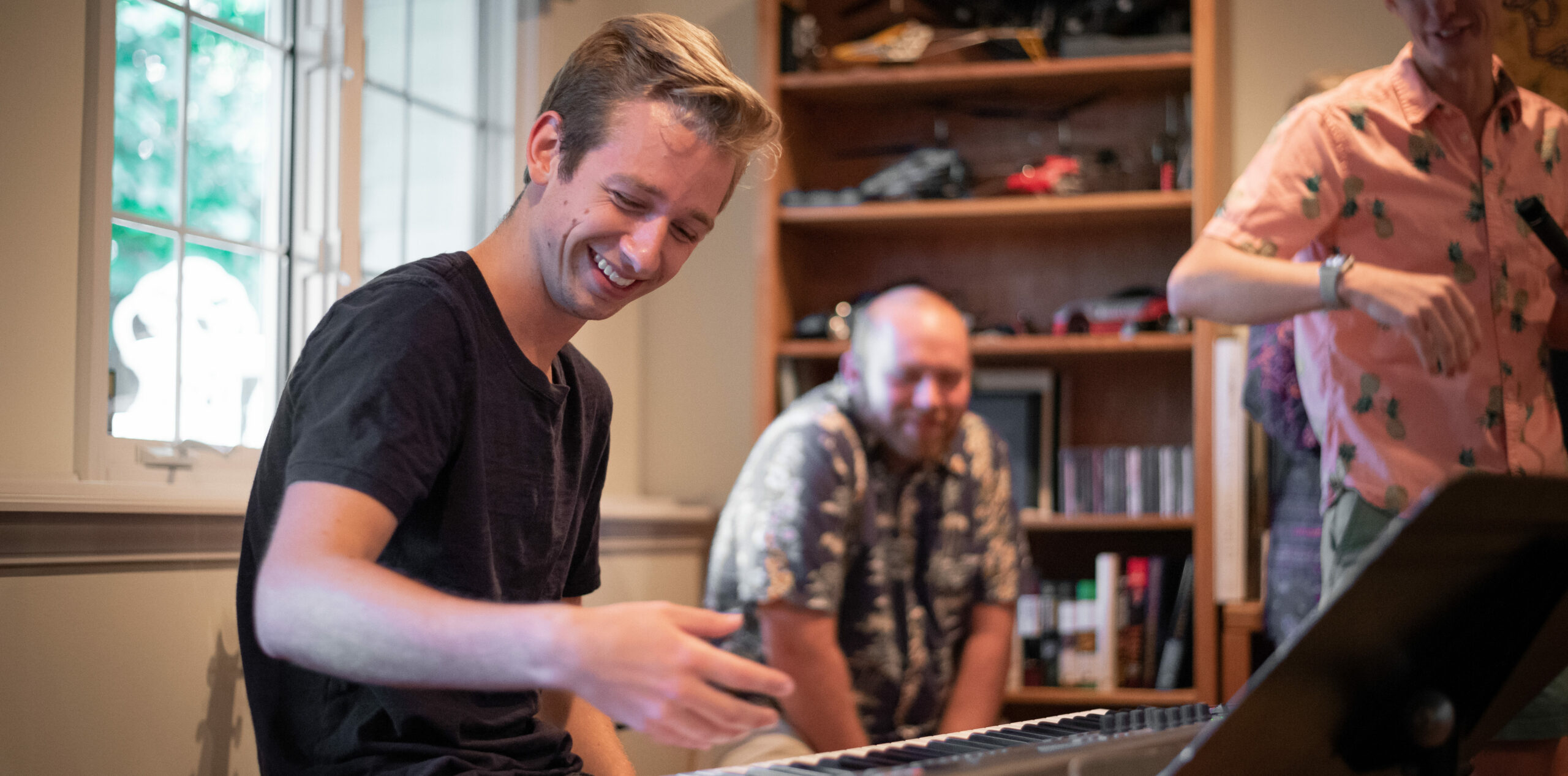Charlie Cooper is a Michigan-born composer, field recordist and sound artist. Although he works in a variety of mediums, most of his music deals with water as a sound source, instrument, and performance space. He has presented his underwater recordings and performances in a variety of immersive sound walks, sound installations and electro-acoustic pieces.
In addition to his work with water, Charlie writes for film and his scores can be heard in the Lifetime feature film 10 Year Reunion as well as three feature length Michigan State University productions (313 Choices), Sorta Late, and Crandie’s.
AN INTERVIEW WITH “HARVESTING RAIN” (2018) COMPOSER CHARLIE COOPER
ARCO: Could you tell us a little bit about your musical background?
CC: I started playing piano when I was five and learned guitar a little later on. It was in high school that I got really excited about music, and joined as many groups as I could, including jazz band, choir, drumline and a steel drum band. Growing up I mostly listened to rock, so I loved being exposed to all these different styles of music. I studied composition at Michigan State University tried to soak up as much as I could about composition, performance, theory and musicology. I am now focused on electronic composition and sound installations using naturally occurring sounds that I record. I never thought I’d be doing what I am doing now, and I owe that to the support of my parents and the encouragement of my professors to stay curious and keep exploring.
ARCO: What was the first moment when you realized you wanted to study composition/be a composer?
CC: I was 13 or 14, sitting at my piano trying to plunk out the notes to “Paint it Black” by the Rolling Stones. I couldn’t get the chord progression right, but I liked the sound of whatever I played so I started messing around with it. It ended up being the first piece I wrote, and I was hooked.
ARCO: Have you ever written for non-Western or non-traditional instruments before writing for Projeto Arcomusical?
CC: This was my first time! I’ve done arrangements for the steel drum band I used to play in, but that’s about it.
ARCO: What was your process when working on “Harvesting Rain?”
CC: I listened to a lot of berimbau music, anything I could find. Then I carefully chose the tuning of each instrument to allow for some pitch flexibility. And after that, I just went for it. Arcomusical was kind of enough to read a sketch of my piece, and they continually gave me feedback while I was writing the piece. At first it was just exploration, throwing stuff at a wall to see what stuck. But once I got more familiar with the instrument through reading and listening and Alexis and Greg’s advice, I was able to focus on motivic development and formal structure, like any other piece.
ARCO: What was the biggest challenge for you when writing for the berimbau?
CC: I struggled with making sure that what I was writing made sense physically. The body and the instrument are really one unit, so I tried to imagine how it would feel to play what I wrote. Does the gesture feel natural and comfortable? Is it tiring? Is it jerky or awkward? This was my primary focus and the hardest thing for me to wrap my head around.
ARCO: What was your favorite part about writing for the berimbau and Projeto Arcomusical?
CC: My favorite part was that I was entirely unfamiliar with every aspect of the berimbau. It was daunting, but really exciting! I spent the majority of my time digging through the Arcomusical composer guide to check and recheck tunings and conventions and to look at examples. I spent lots of time listening to berimbau music and learning about capoeira to develop some level of understanding of the musical tradition before I started composing.
ARCO: What would be one piece of advice that you would offer to other composers interested in writing for the berimbau?
CC: Listen, listen, and then listen some more. It took time for me to learn how berimbau players communicate in order to perform this intricate and complex music. I also had to let the rhythms and forms of the pieces sink in to see just how connected the body of the player is to the music. After that, just go for it – Greg and Alexis will help you out every step of the way!
ARCO: Is there anything else you would like to add?
I want to thank Greg and Alexis and Arcomusical for working with me on this piece. Not only are they extremely helpful, but they are some killer players. I’m thrilled to work with such a high-level group, it’s been a true pleasure. Thanks so much!



